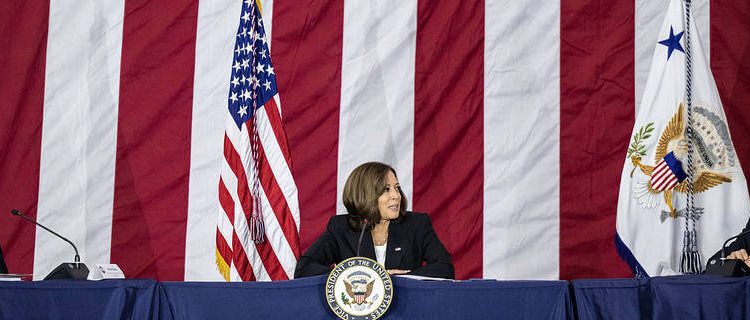The Vice President of the United States, Kamala Harris, confirmed the extension of the International Space Station (ISS) until the year 2030 and announced new commitments of the North American government with private sector companies to develop commercial space stations during the second meeting of the National Space Council of the Biden-Harris Administration, held last Friday at NASA’s Johnson Space Center in Houston.
At the end of last July, Yuri Borisov, recently appointed director general of the Russian space agency Roscosmos, by the president of Russia, Vladimir Putin, announced by surprise that his country would definitively abandon its collaboration in the ISS project after 2024. “You know that we are working within the framework of international cooperation on the ISS. Of course, we will fulfill all our obligations to our partners, but the decision to leave the station after 2024 is made,” Borisov told Putin in a statement released by the Kremlin. “I think that by then we will begin to form the Russian orbital station,” Borisov added.
“For more than two decades, astronauts aboard the ISS have advanced scientific progress. In fact, I had the honor of speaking to three of them this morning from here. NASA has used the station’s unique microgravity environment to develop new treatments for cancer and rare genetic diseases,” said Harris.
“And when I spoke to them this morning, they talked about how their work is helping us fight the climate crisis. Their job is to increase the productivity of our farms and slow down the effects of aging. So, our administration and all of us who are meeting today are committed to continuing that work, which is why last year, our administration announced that we would extend our commitment to the ISS until 2030,” added the vice president to applause from those present. .
“For generations, with our allies and partners around the world, the United States has led our world in the exploration and use of space,” Harris said. “Our leadership has been guided by a set of fundamental principles: cooperation, security, ambition and public trust, which is the recognition, of course, that space can and must be protected for the benefit of all people. There is so much that we still do not know and so much that we have not yet done: space continues to be a place of opportunities to be discovered and realized. Our test and our responsibility is to work together to guide humanity towards this new frontier and realize the incredible potential of space for all people.”
To magnify the efforts of the US Administration, the Vice President announced a new coalition of space companies that will focus on increasing the capacity of the space industry to meet the growing demand for qualified technical manpower. The work of the new coalition will begin next October and will be made up of the companies Blue Origin, Boeing, Lockheed Martin and Northrop Grumman. Other industry partners will include Amazon, Jacobs, L3Harris, Planet Labs PBC, Rocket Lab, Sierra Space, Space X and Virgin Orbit, joining the Florida Space Coast Consortium Learning Program and its sponsors, SpaceTEC, Airbus OneWeb Satellites, Go Space and Morf3D.
The coalition, with support from the Aerospace Industries Association and the American Institute of Aeronautics and Astronautics, will launch three regional pilot programs in the Florida Space Coast, the Louisiana and Mississippi Gulf Coast and Southern California, and will collaborate with service providers such as community colleges, unions and others, to demonstrate a replicable and scalable approach to attracting, training and creating employment opportunities, particularly for people from backgrounds traditionally underrepresented in STEM jobs.

